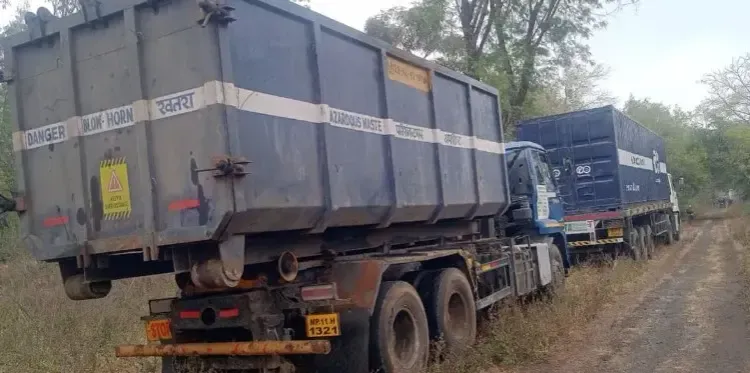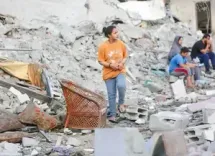Madhya Pradesh Government Identifies Pithampur as the Sole Site for Union Carbide Waste Disposal

Bhopal, Jan 1 (NationPress) As the Madhya Pradesh government gears up to eliminate the chemical and toxic waste from the now-defunct Union Carbide India Limited (UCIL) in Bhopal, it announced on Tuesday that Pithampur is the only appropriate site for hazardous waste disposal in the state.
The State Gas Relief and Rehabilitation Department stated that the Pithampur disposal site, located in Dhar district, has been established in accordance with the regulations of the Central Pollution Control Board (CPCB), guaranteeing the safe disposal of hazardous materials.
“The plant at Pithampur is specifically engineered for the secure incineration of waste produced by industrial facilities throughout the state. In 2015, a trial run was conducted for the disposal of 10 metric tonnes of UCIL waste under the supervision of the CPCB, following all safety standards,” explained Swatantra Kumar Singh, the Director of the Gas Relief and Rehabilitation Department.
He further pointed out that the advanced treatment, storage, and disposal facility (TSDF) at Pithampur has been efficiently incinerating waste from various organizations since 2006, mirroring the storage and operational methods at UCIL.
Singh emphasized that after the 2015 trial run for UCIL waste disposal, the emission levels were confirmed to comply with the national standards.
He mentioned that over the last decade, the cultivation area for soybean and wheat in the Pithampur Circle village has expanded.
“The findings indicated that no harmful substances were detected in the air or water following the disposal process. The residuals from incineration were safely disposed of using a double composite liner system to ensure environmental safety,” he added.
Singh informed that 337 metric tonnes of chemical waste from UCIL (whose leakage led to the Bhopal gas tragedy in 1984) is being managed under the supervision of an oversight committee established by the Centre in July 2010 to oversee UCIL waste disposal.
He noted that the waste is being securely packed and loaded into 12 specialized containers designed in accordance with CPCB standards.
Each container is leak-proof, fire-resistant, and outfitted with GPS tracking for real-time monitoring, he stated.
“Two trained drivers have been assigned for each container to guarantee safe transportation. The convoy will include police security, an ambulance, a fire brigade, and a quick response team to manage any emergencies. The waste will be moved through a dedicated green corridor from Bhopal to the Pithampur TSDF, with operations set to begin shortly,” Singh added.
The waste has remained on the UCIL premises since the catastrophic Bhopal gas tragedy during the night of December 2 and 3 in 1984 when a highly toxic gas, methyl isocyanate, leaked from the factory, leading to the deaths of 5,479 individuals, according to government estimates.
Government data also indicates that the tragedy caused numerous disabilities and has had severe health repercussions for over half a million individuals over the years.









